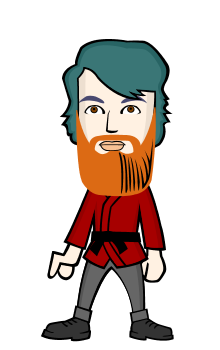Video games should be in Olympics, says Warcraft maker
 E-sports attract huge crowds - but can it become and Olympic sport?
E-sports attract huge crowds - but can it become and Olympic sport?Competitive video gaming - known as e-sports - should be included in the Olympic Games, the creator of World of Warcraft has told the BBC.
Rob Pardo, who until July was chief creative officer at Blizzard Entertainment, said "sport" now had a broad definition.
"Videogames are well positioned to be a spectator sport," he told Afternoon Edition on BBC 5 Live.
Professional e-sports events currently attract audiences of millions.
A recent major final held in Seoul, South Korea, filled a stadium of 40,000 people - with many more watching either online or at meet-ups around the world.
"There's a very good argument for e-sports being in the Olympics," Mr Pardo, who was also lead designer on Starcraft: Brood War, a game often credited with kickstarting the e-sports phenomenon.
 Millions watch the most popular games, both at stadium-sized events and online
Millions watch the most popular games, both at stadium-sized events and online"I think the way that you look at e-sports is that it's a very competitive skillset and you look at these professional gamers and the reflexes are lightning quick and their having to make very quick decisions on the fly.
"When you look at their 'actions per minute', they're clearing over 300."
However, he conceded that video gaming faces a cultural battle to win other those who follow more physical sports.
"That starts getting into how you define sport," he said.
"If you want to define sport as something that takes a lot of physical exertion, then it's hard to argue that videogames should be a sport, but at the same time, when I'm looking at things that are already in the Olympics, I start questioning the definition."
'Mind sport'
Having new sports admitted into the Olympic roster is a long-winded process and, since the International Olympic Committee (IOC) capped the number of sports allowed in the Games, has become increasingly difficult.
Even if e-sports were to be recognised as an Olympic sport, that does not mean it will be included in the Games - it merely means a case can be presented to the IOC.
Thousands turned up for the League of Legends World Championship in Seoul
Take chess, for instance. Supporters of the game have long called for its inclusion the Games, but the IOC has been reluctant, considering it a "mind sport" and therefore not welcome in the Games.
Video games face the same hurdle, but has done its best to at least act like a sport, by adding measures such as an anti-doping programme.
Mr Pardo argues that e-sports could be visually appealing to a broad audience.
"You can do whatever you want with the graphics, you can make it be really excited and competitive,"



